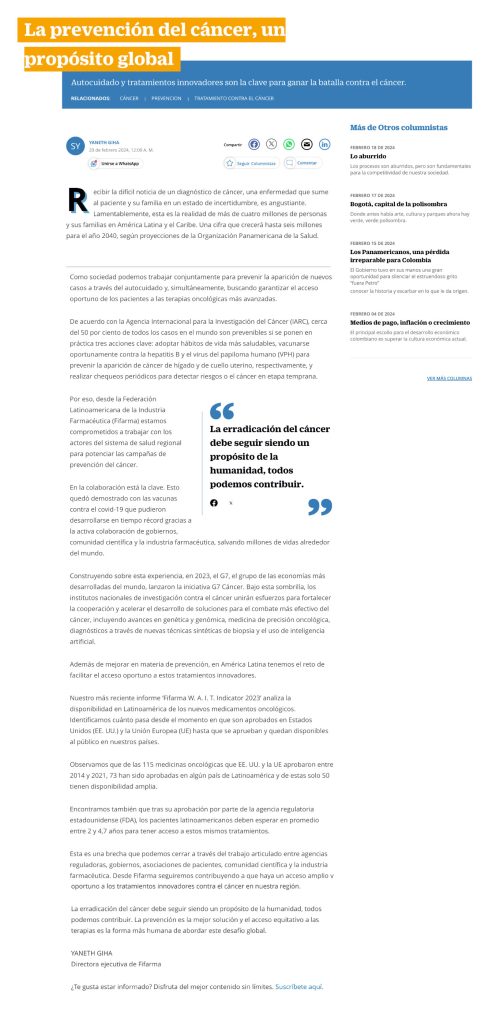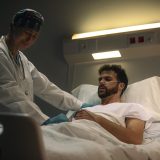Cancer Prevention, a Global Purpose
Cancer Prevention, a Global Purpose
Receiving the difficult news of a cancer diagnosis, a disease that plunges the patient and their family into a state of uncertainty, is distressing. Unfortunately, this is the reality for more than four million people and their families in Latin America and the Caribbean. A figure that will grow to six million by the year 2040, according to projections from the Pan American Health Organization.
As a society, we can work together to prevent the occurrence of new cases through self-care and, simultaneously, seeking to ensure timely access to the most advanced oncology therapies for patients.
According to the International Agency for Research on Cancer (IARC), about 50 percent of all cases worldwide are preventable if three key actions are put into practice: adopting healthier lifestyles, timely vaccination against hepatitis B and human papillomavirus (HPV) to prevent liver and cervical cancer, respectively, and undergoing regular check-ups to detect risks or cancer at an early stage.
Therefore, at the Latin American Federation of the Pharmaceutical Industry (FIFARMA), we are committed to working with regional healthcare stakeholders to enhance cancer prevention campaigns.
Collaboration is key. This was demonstrated with the COVID-19 vaccines that were able to be developed in record time thanks to the active collaboration of governments, the scientific community, and the pharmaceutical industry, saving millions of lives around the world.
Building on this experience, in 2023, the G7, the group of the world's most developed economies, launched the G7 Cancer initiative. Under this umbrella, national cancer research institutes will join forces to strengthen cooperation and accelerate the development of solutions for more effective cancer combat, including advances in genetics and genomics, oncological precision medicine, diagnostics through new synthetic biopsy techniques, and the use of artificial intelligence.
In addition to improving prevention, in Latin America, we have the challenge of facilitating timely access to these innovative treatments.
Our most recent report ‘FIFARMA W. A. I. T. Indicator 2023’ analyzes the availability in Latin America of new oncology drugs. We identify how long it takes from the moment they are approved in the United States (US) and the European Union (EU) until they are approved and available to the public in our countries.
We observe that of the 115 oncology drugs approved by the US and the EU between 2014 and 2021, 73 have been approved in some country in Latin America, and of these, only 50 are widely available.
We also find that after approval by the US Food and Drug Administration (FDA), Latin American patients must wait on average between 2 and 4.7 years to access these same treatments.
This is a gap that we can close through coordinated work between regulatory agencies, governments, patient associations, the scientific community, and the pharmaceutical industry. At FIFARMA, we will continue to contribute to ensuring broad and timely access to innovative cancer treatments in our region.
The eradication of cancer must continue to be a purpose of humanity; we can all contribute. Prevention is the best solution, and equitable access to therapies is the most humane way to address this global challenge.
YANETH GIHA
Executive Director of FIFARMA



